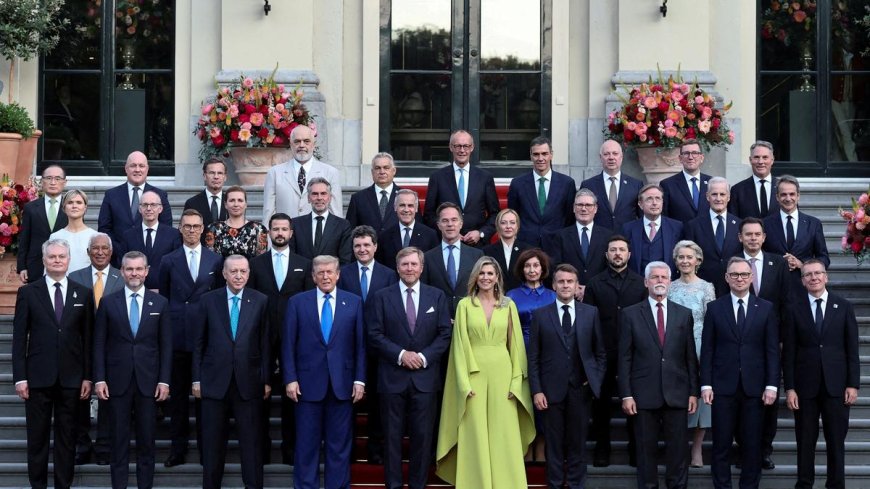NATO Leaders Agree to Increase Military Spending and Reaffirm Commitment to Collective Defense
NATO leaders have agreed to boost defense spending following pressure from U.S. President Donald Trump. The 32 leaders pledged to invest 5% of GDP annually on defense requirements by 2035. Some countries have expressed concerns, but a review in 2029 will monitor progress. The move aims to strengthen NATO's collective security guarantee.

NATO leaders agreed on Wednesday (June 25, 2025) on a significant increase in defense spending following pressure from U.S. President Donald Trump. They reaffirmed their commitment to mutual assistance in case of an attack.
The leaders endorsed a statement committing to invest 5% of GDP annually on defense requirements by 2035. Spain has already stated it cannot meet this target, and other countries have expressed reservations. A review of spending in 2029 will monitor progress and reassess the security threat from Russia.
The leaders reiterated their commitment to NATO's collective security guarantee that an attack on one member is an attack on all. This unity, despite underlying divisions, was hailed as transformational by NATO Secretary-General Mark Rutte.
The spending increase will require countries to allocate billions of dollars. The United States, NATO's largest spender, is shifting focus to other security priorities, impacting European allies and Canada.
Some countries, facing economic challenges, find it difficult to meet the spending target. Trump's tariff policies may further hinder allies' efforts. Welfare and foreign aid budgets are being squeezed to allocate more funds to defense.
Russia's neighbors are leading in boosting defense spending. Countries like Poland, the Baltic states, Nordic countries, Britain, France, Germany, and the Netherlands have committed to the goal.
The allies have revamped spending targets, setting new levels for defense spending and broader security-related investments. Progress will be reviewed in 2029.
Extra funds may be required if the U.S. reduces forces in Europe. European allies are increasing defense spending due to concerns about Russia's threat.
While many countries are ramping up defense spending, Hungarian Prime Minister Viktor Orban believes Russia is not a significant threat. Orban is seen as a close ally of Russian President Vladimir Putin.
According to the source: The Hindu.
What's Your Reaction?
 Like
0
Like
0
 Dislike
0
Dislike
0
 Love
0
Love
0
 Funny
0
Funny
0
 Angry
0
Angry
0
 Sad
0
Sad
0
 Wow
0
Wow
0















































































































































